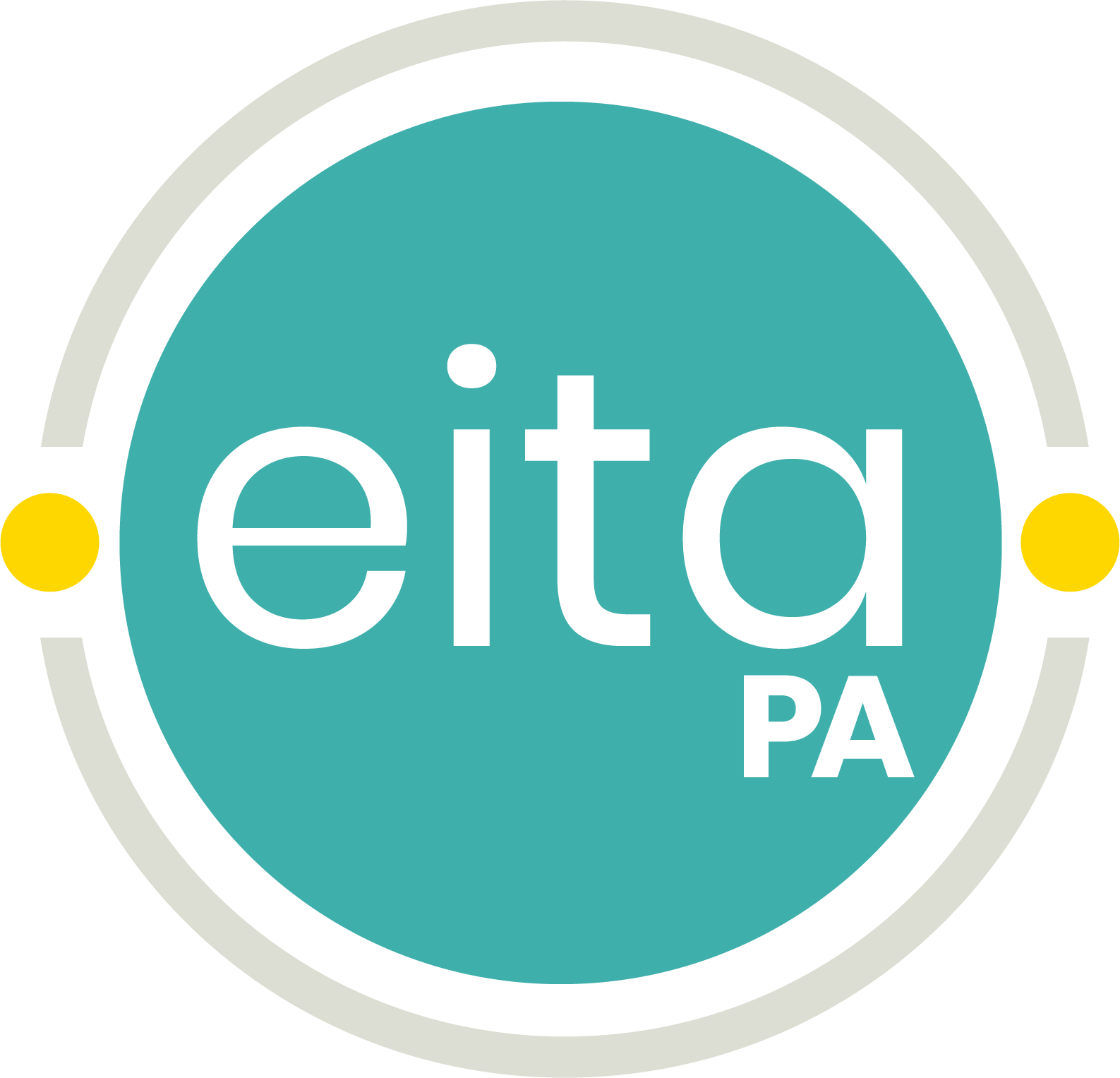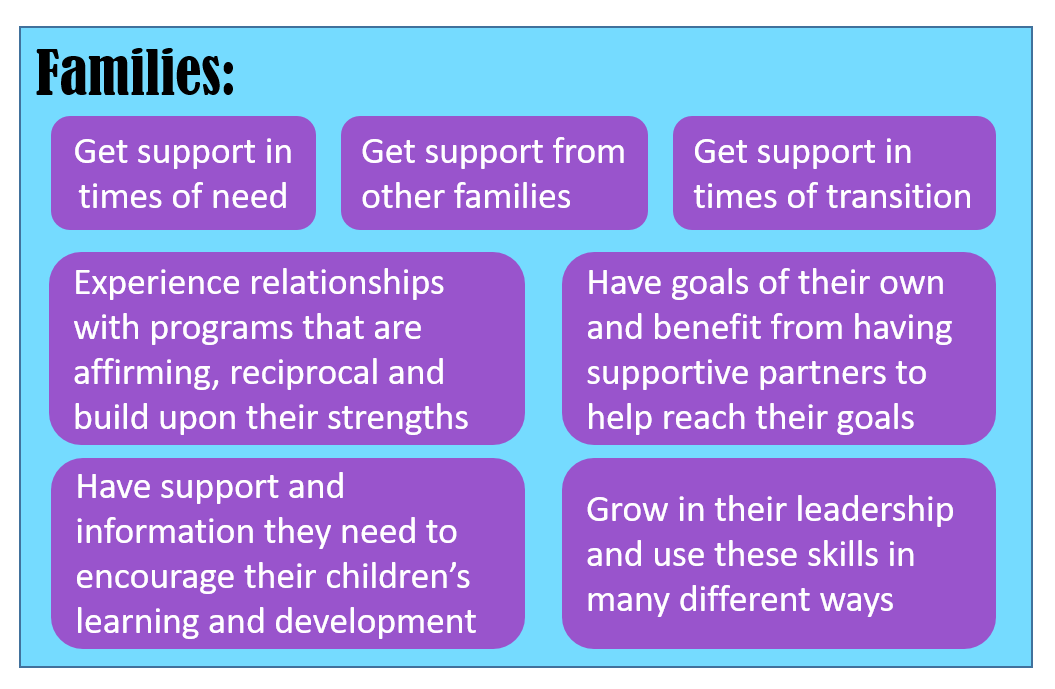Families have unique information about their child.
This information along with observations by additional team members helps create a whole picture of the child. When you involve families in the ECO process, it supports high quality data reporting as well as many aspects of family engagement.
Did you know the Office of Child Development and Early Learning (OCDEL) developed a set of standards to guide our partnership with families? These Pennsylvania Learning Partnership Standards for Early Childhood create a framework of how programs should approach family engagement. There are seven standards:
Through the everyday actions and interactions you have with families, you support these standards and ECO is an additional opportunity for this.
When you encourage families to share their child’s strengths, needs and accomplishments, you provide the foundation for families to gain confidence to be a leader in their own child’s education.
When you support families to identify and share what they see their children do, how they learn, strengths and areas for growth, you send a clear message that their input is valuable and necessary.
When you share how Early Intervention utilizes ECO data in program improvement efforts and introduce the three outcome areas, you provide an opening for families to grow in their leadership.
When you talk about the rationale of “why ECO” and the reason for these three outcomes, you provide families an entry point to contribute to broader program improvement efforts.
When you ask families to share what they know and share what you have observed, you create a two way conversation which begins building a relationship that is strong, affirming, reciprocal, and strengths-based.
As you watch this short, 90-second video of family members sharing their thoughts on the engagement of families during the ECO process, consider how this helps support the relationship between families and professionals in general.
As you engage in conversations at these critical times, such as the ones needed to gather authentic assessment information, what is the impact you have? You can provide validation of the family’s role, support the family to encourage their child’s learning and development and ultimately spark the family’s growing leadership role that could continue through service delivery.
Although ECO is just a blip in the overall Early Intervention experience – for both families and you – it provides an opportunity at critical times. As families experience transitions, don’t underestimate how conversations around ECO could serve to strengthen a foundation of family engagement. Engaging with families in the process is a way of demonstrating that we value families both in their own child’s learning and development, as well as including their voice as we measure the impact of Early Intervention for young children in Pennsylvania.
In parenting, many moments are fleeting. Remember, every conversation you have and every door you open for families to share, learn and contribute honors their journey and supports their next steps. Early childhood goes too fast to miss any chance we have to support family voice. Let’s maximize the opportunity that Early Childhood Outcomes provides and create deeper connections and meaning through this process.
For more information on Early Childhood Outcomes, go to our topic of interest page on ECO.

